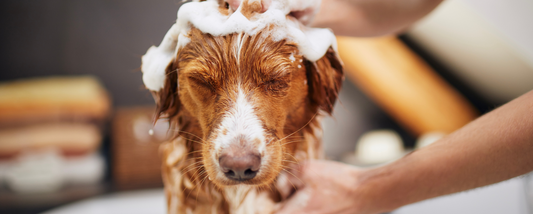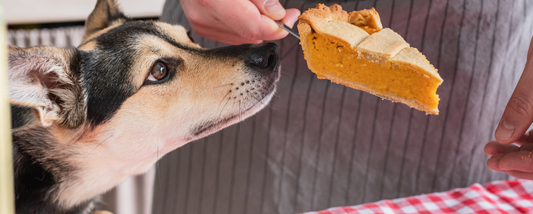As our dogs age, their needs change, and it's our responsibility to adapt and provide them with the best care possible. Senior dogs hold a special place in our hearts, having shared years of unconditional love and joy with our families. Here's a guide on how to care for them as they journey through their golden years.
Understanding the Aging Process
Before we dive into the specifics of caring for your senior dog, it's crucial to understand the aging process. Just like humans, dogs experience physical and behavioral changes as they get older. These changes can include:
- Slower metabolism: Senior dogs tend to gain weight more easily, so it's essential to adjust their diet to maintain a healthy weight.
- Decreased activity: Your once-rambunctious pup may slow down and become less active. This doesn't mean they don't enjoy playtime; it just means they may tire out faster.
- Arthritis and joint issues: Osteoarthritis is common in older dogs and can cause discomfort or pain. Consider joint supplements or medication as advised by your vet.
- Dental issues: Dental health can deteriorate with age. Regular dental check-ups and appropriate dental care are essential.
- Cognitive changes: Some senior dogs may experience cognitive dysfunction, similar to dementia in humans. This can result in confusion or changes in behavior. A Link Smart Dog Tracker may provide peace of mind that your pup is exactly where they're supposed to be at all times for their safety and wellbeing.
Vet Care Is Vital
Regular vet visits are crucial for senior dogs. In fact, they become even more critical as your dog ages. Your vet can help identify and manage age-related health issues early. Here's what you can expect from these visits:
- Physical examinations: Your vet will assess your dog's overall health, including checking for lumps, bumps, and dental issues.
- Vaccinations: Your dog will still need vaccinations, but the frequency may change. Consult your vet about the appropriate schedule.
- Bloodwork: Regular blood tests can help detect issues like kidney disease or diabetes early, making them more manageable.
- Medications: Your vet might prescribe medications or supplements to address specific health concerns like arthritis or heart disease.
Adjust Their Diet
Your senior dog's nutritional needs will change. They may require a diet with fewer calories to maintain a healthy weight and prevent obesity. Consider transitioning to senior-specific dog food, which is formulated with the needs of older dogs in mind. It often includes joint supplements, reduced fat content, and other essential nutrients. Ask your vet what diet adjustments would be best for your dog’s needs.
Keep Them Active
While your senior dog may not have the same energy as when they were a pup, they still need regular exercise to stay healthy and mentally engaged. Tailor their physical activity to their current abilities and comfort level. Short, gentle walks and low-impact exercises like swimming can help keep their joints limber and their minds stimulated.
Make Accommodations
As your dog ages, you may need to make some adjustments around the house to ensure their safety and comfort:
- Orthopedic bedding: Provide your senior dog with a comfortable and supportive bed to help ease joint pain.
- Non-slip surfaces: Place rugs or mats on slippery floors to prevent falls and make it easier for your dog to move around.
- Elevated food and water bowls: If your dog has trouble bending or reaching, raised food and water dishes can make mealtimes more comfortable.
- Regular potty breaks: Senior dogs may need more frequent trips outside, so be prepared to accommodate their schedule.
Monitor Their Behavior
Pay close attention to changes in your senior dog's behavior. If you notice any of the following, it's essential to consult your vet right away:
- Increased thirst or urination
- Changes in appetite
- Lethargy or excessive sleep
- Unusual lumps or bumps
- Changes in behavior, such as aggression or confusion
- Incontinence or difficulty moving
Provide Love and Companionship
The most important aspect of caring for a senior dog is providing love and companionship. They've been with you through thick and thin, and their need for affection and attention doesn't diminish with age. Spend quality time with your senior dog, offer plenty of cuddles, and make their golden years as happy and comfortable as possible.
Caring for a senior dog is a rewarding experience and an opportunity to give back the love and loyalty they've shown us over the years. By understanding their changing needs, providing proper veterinary care, adjusting their diet, and offering love and companionship, you can help your senior dog enjoy fulfilling and comfortable golden years.





